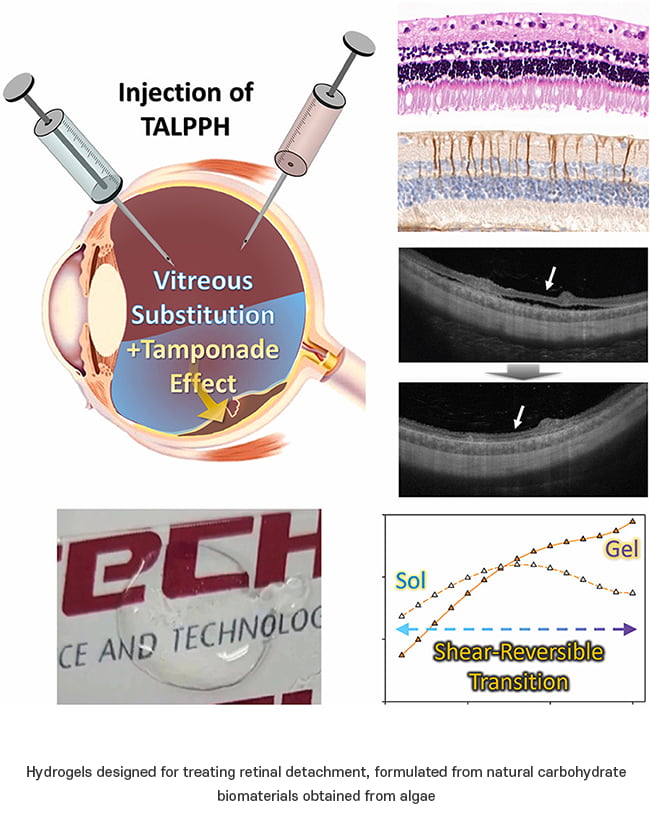
Researchers Introduce Algae-Derived Solution for Retinal Detachment
A recent study has introduced an innovative approach to treating retinal detachment through an artificial vitreous body made from alginate, a natural carbohydrate extracted from algae. This research represents a collaboration among experts from Pohang University of Science and Technology (POSTECH) and Dong-A University Hospital, showcasing a promising alternative to conventional intraocular fillers that often come with side effects.
Addressing Retinal Detachment with a Natural Solution
The study's findings, detailed in the international journal Biomaterials, highlight the potential of this alginate-based hydrogel to maintain vision and stability after surgery with its high biocompatibility and optical properties closely resembling the natural vitreous body.
The creation of the hydrogel aims to combat the challenges associated with retinal detachment—a condition that can lead to blindness if not properly addressed. Traditional treatments involve the replacement of the eye's gel-like vitreous body with materials that might cause complications.
In contrast, the newly developed hydrogel offers a safer, more effective solution by mimicking the vitreous body's function and preventing the recurrence of detachment with no observed adverse effects in animal models.

Clinical Validation and Future Prospects
Lead researcher Professor Hyung Joon Cha from POSTECH emphasized the rising incidence of retinal detachment, particularly among the youth, underscoring the urgency for advanced treatment options. The successful application of the hydrogel in rabbit eyes, which are similar to human eyes in many aspects, marks a significant step forward in eye care, potentially revolutionizing the treatment of retinal detachment and other vitreoretinal disorders.
The research team is committed to further enhancing this technology, aiming to bring this innovative solution to practical use. With the global market for intraocular fillers growing annually, the introduction of this alginate-based hydrogel into vitreoretinal surgeries could offer a new standard of care, improving outcomes for patients worldwide. The study received support from the Korea Medical Device Development Fund and the National Research Foundation of Korea.
About Retinal Detachment
Retinal detachment is a serious eye condition where the retina, the thin layer of tissue at the back of the eye responsible for receiving and sending visual signals to the brain, separates from its underlying supportive tissue. This separation prevents the retina from functioning correctly, leading to symptoms such as sudden flashes of light, floaters, and a dark curtain over the field of vision. If not promptly treated, retinal detachment can lead to permanent vision loss. The condition often requires surgical intervention to reattach the retina to its proper place, thereby restoring its function and preventing further damage.
Reference
DOI: https://doi.org/10.1016/j.biomaterials.2023.122459
*Stay in the loop and make sure not to miss real-time breaking news about ophthalmology. Join our community by subscribing to OBN newsletter now, and get weekly updates.
(1).jpg)









